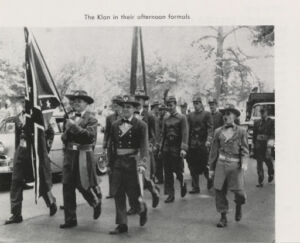An Open Letter to the University of Colorado Boulder Community from the Panhellenic Vice President of Diversity, Equity and Inclusion
The systemically racist, harmful, and exclusive past of fraternity and sorority life will not be stowed away in a box in history’s attic.
To the community,
I am acknowledging a position of power in which change can be created, a step I take seriously.
Acknowledging a past, which is still very much our present, where action was not taken where it should have been is a step I take seriously. Acknowledging the systemically non-equitable and non-inclusive roots of fraternity and sorority life is a step I take seriously.

I am taking this step first and foremost with all of you, as I historically would have not been accepted in this form of community, to which I do not take for granted.
The deeply complex issues that plague our past, and still our present, is something to not be forgotten, but rather called out. Racism, homophobia, transphobia, assault, and all forms of harm that reside in our community are issues that we will not allow to be swept under the rug as they have yesterday and today. Action is being taken to make our community diverse, equitable, and inclusive, because without it, I, and countless others, would not have the voice to spread this message:
Harm and exclusion is still happening in our community and needs to be held accountable.
I am here for every person—to give them a voice, a conversation, and most importantly, space to exist—by means of communication, education and holding deeply systemic issues, such as racism, accountable.
During a deeply important time, Black History Month, this message must be reiterated with intention.
From the first white founded fraternity, Phi Beta Kappa in 1776, the roots of fraternity and sorority life were utilized to benefit the distinguishable year in our nation’s history.

The exclusion and harm of that year, and millenia prior, has further resulted in centuries of neglect towards the safety of both Black students and non-students. It was utilized to create a system that benefits predominantly white organizations.
It was not until 130 years later in 1906 that the first Black intercollegiate Greek organization Alpha Phi Alpha Fraternity, Inc. was founded. The existence of Black Greek-letter organizations (BGLOs) has often not been met with kindness by predominantly white Greek organizations.
The Kappa Alpha (KA) order, “one of the oldest Greek-lettered societies that idolizes the supposed ‘gentlemanly’ values of Confederate general Robert E. Lee,” and “openly idolized the Reconstruction-era Ku Klux Klan” in 1909 at Cornell University was also the college where Alpha Phi Alpha Fraternity, Inc. was founded. Members of the KA fraternity “flew the Confederate battle flag at half-mast in defiance of court-ordered racial integration,” as stated in a Royal Historical Society post.
In 1983 at the University of Mississippi when one of the Divine Nine, which is an umbrella group consisting of historically Black fraternities and sororities, Phi Beta Sigma Fraternity, Inc. was “forced to take cover” when nearly “1000 white students descended on the fraternity house chanting ‘Save the [Confederate] flag’ during the University’s annual ‘Dixie Week’.”
These despicable acts were rooted in exclusively white protected organizations, set in bylaws, which are governing and operating laws specific to national and chapter organizations, and have often been maintained by alumni and active members.
The black and white filtered photos in fraternity and sorority yearbooks that feature blackface, cultural appropriation, and events that have terrorized Black fraternity and sorority members from years that are not too far from our own cannot afford to be stowed away in a box to sit, forgotten, in history’s attic.
These acts in the fraternity and sorority life community are echoed now as exclusion and harm.
From microaggressive comments in conversation to direct acts of hatred towards minoritized groups, the “past” of racism is still our present. Though many of these actions may be followed with another comment that attempts to justify the usage of a slur, microaggression, or directed act with a phrase along the likes of “that wasn’t my intention”, the lack of change within intention is what has continually driven our community, among many others in the nation, apart.
The smallest acts of hatred are what chip away at the fiber of one’s being. The perpetuation of performative activism and what often occurs behind closed doors after an Instagram story post in support for a minoritized group is what those groups witness in a frustrating entirety.
As an ally of the Black community, and for other allies in our community, it is our duty to hold acts of racism accountable and educate others on the systemically racist and harmful history of fraternity and sorority life and the United States of America.
It is our duty to call racism both out and in; in the moment and behind closed doors.
It is also our duty to acknowledge the continual acts of racism, harm and exclusion that exist within our community today.
By ignoring the issue, one continues to perpetuate it.
By acknowledging and holding the issue accountable, one fights for the safety of our Black community members.

By fighting for the safety, wellbeing, and overall inclusion of our Black community members, one fights for equity.
This does not end when Black History Month ends.
I am looking forward to my term this year as the Panhellenic Vice President of Diversity, Equity, and Inclusion, and working alongside my Director of Diversity, Equity, and Inclusion, Chyna Varner.
Together, we have heard our community and are here to create change, and most importantly, to act.


This is just a performative statement.
Real change needs to be created in this community.